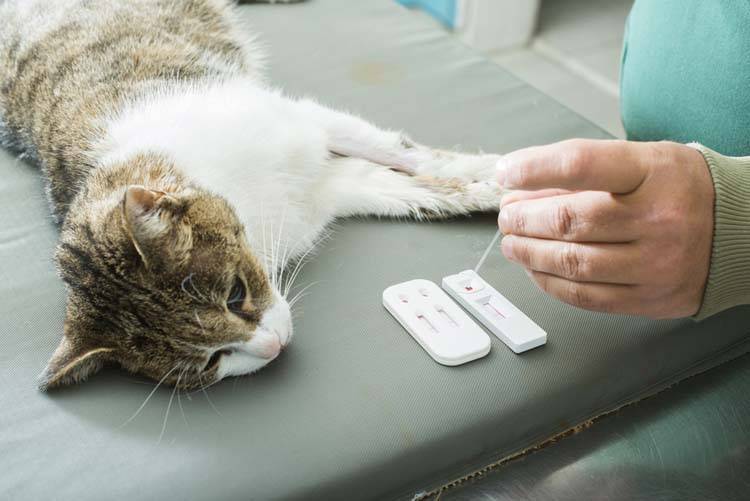Importance of Blood Work for Your Pet
By Karen Doane, RVT
It’s time for you to get your pet either spayed or neutered. So why then does the veterinarian recommend blood work on your puppy or kitten? Isn’t he young and healthy? Spays and neuters are commonplace, and most veterinary hospitals perform several of them everyday, so what’s the big deal?
Benefits of Blood Tests
Uncover Health Issues
Even though these surgeries happen routinely, it doesn’t mean they should be taken lightly. Any surgical or anesthetic procedure can pose a risk even for a young and seemingly healthy pet. More than likely, your young dog or cat is in excellent health and can easily undergo anesthesia and surgery without any ill effects at all.
However, very rarely, even a young pet can have an as-yet-discovered health issue that could cause serious problems during anesthesia. This is why, when the veterinary assistant reviews your estimate for the spay or neuter with you before the surgery, it will include a pre-surgical blood panel.
RELATED: Why Your Cat Needs Regular Visits to the Veterinarian
Determine if Special Anesthetics are Needed
A lot can be determined about the health of your pet with a very small blood sample. Your veterinary team can perform a wide variety of tests that are quick, accurate and cost-effective.
Some anesthetic agents must be metabolized through the kidneys or liver. A pet with healthy internal organs will have no trouble with the process of anesthesia and recovery, but one with compromised hepatic (liver) or renal (kidney) function can have severe issues processing some of the common—and usually very safe—anesthetic agents. After reviewing the blood test results, your veterinarian will know whether or not your pet will require special anesthetics to safely undergo the procedure.
RELATED: Portosystemic Shunt in Dogs
Check Blood Cells
Pre-surgical blood work can also be used to make sure there are enough healthy red blood cells necessary to carry oxygen to maintain the function of vital tissues and organs. Still other tests check to see if the numbers and types of white blood cells indicate any type of infection.
The blood’s ability to clot effectively will also be tested, as this is of extreme importance during any surgical procedure. Your veterinarian will advise you as to which steps should be taken to correct these conditions so your pet can safely undergo the procedure.
Can Spot Problems Early On
Make no mistake. A blood test that shows everything is working normally is definitely not a waste of time or money. Finding out your pet has normal results is valuable information to have for the moment, and can also prove useful in the years to come.
The veterinarian will be able to compare today’s results with those from each yearly wellness check-up in the future. As a result, this information can be used to spot health issues early, giving you the opportunity to begin treatment quickly—at the earliest stage of the problem—which could ultimately improve your pet’s quality of life and add years too.
READ ALSO: Canine First Aid






